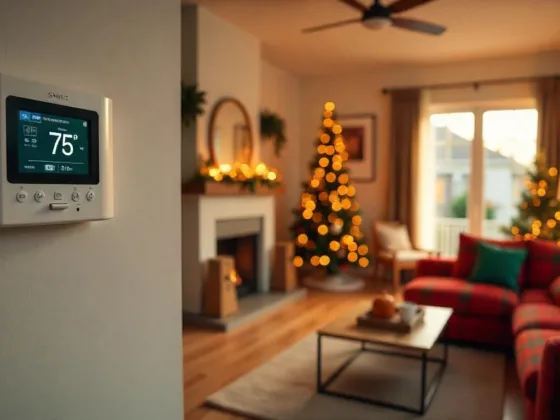Table of Contents Show
Pergolas have become a popular choice for homeowners seeking to enhance their outdoor living spaces. They provide a perfect balance between form and function, offering shade, a defined area for relaxation, and a stunning visual element. When it comes to selecting the right pergola, two materials often stand out—wood and aluminum. Each has unique advantages, and the best choice for you depends on your needs, budget, and aesthetic preferences.
In this article, we’ll dive into a detailed comparison of wood vs. aluminum pergolas to help you decide which one is the right fit for your outdoor space.
1. Aesthetic Appeal: Natural Beauty vs. Sleek Modernity
Wood Pergolas:
Wood has a timeless, natural appeal that blends seamlessly with outdoor environments. It brings a warm and rustic charm to your backyard, making it a popular choice for those who appreciate classic designs. Wood pergolas can be stained or painted in various colors to match the exterior of your home or other outdoor elements. This flexibility in appearance allows you to achieve a truly customized look.
Aluminum Pergolas:
Aluminum pergolas offer a more modern and streamlined look, making them an excellent choice for contemporary homes. They often have a sleek finish and clean lines, which can create a sophisticated, minimalist vibe in your backyard.
Aluminum can also be powder-coated in different colors, providing a range of options for matching your outdoor decor. However, it lacks the organic warmth of wood, which might be a consideration for those looking for a more natural feel.
Verdict: Choose wood if you prefer a natural, rustic charm, and aluminum if you want a sleek, modern look.
2. Durability and Longevity: Which Material Lasts Longer?
Wood Pergolas:
Wood pergolas, particularly those made from cedar, redwood, or teak, are known for their durability. These types of wood are naturally resistant to insects and decay, making them suitable for outdoor use. However, all wood pergolas require regular maintenance to protect them from weathering, moisture, and pests. Without proper care, wood can crack, warp, or rot over time, especially in areas with extreme weather conditions.
Aluminum Pergolas:
Aluminum is highly durable and resistant to the elements. Unlike wood, aluminum won’t rust, rot, or suffer from insect infestations. It is designed to withstand harsh weather, including heavy rain, snow, and strong UV rays. Aluminum pergolas generally have a longer lifespan with minimal upkeep, making them an ideal choice for homeowners who want a low-maintenance solution.
Verdict: Aluminum is the better option if durability and longevity are your primary concerns, especially if you live in an area with severe weather.
3. Maintenance Requirements: How Much Effort is Needed?
Wood Pergolas:
To keep a wood pergola looking its best, it requires regular maintenance, including staining, sealing, or painting every few years. This helps to protect the wood from moisture damage, fading, and cracking. Additionally, you may need to inspect for pests like termites and treat the wood as needed. While the maintenance can be time-consuming, it’s a necessary step to preserve the beauty and integrity of the wood.
Aluminum Pergolas:
Aluminum pergolas are virtually maintenance-free. A simple wash with soap and water is usually enough to keep them clean. Since they don’t need painting or sealing, they save you time and effort over the years. Aluminum’s resistance to rust and corrosion further minimizes the need for ongoing care, making it a hassle-free choice for busy homeowners.
Verdict: Choose aluminum if you want a pergola with minimal maintenance needs, but select wood if you are willing to put in the effort for its aesthetic rewards.
4. Cost Considerations: What’s the Price Difference?
Wood Pergolas:
Wood pergolas can vary significantly in price, depending on the type of wood used. Redwood and cedar tend to be more expensive due to their natural durability and aesthetic appeal, while pressure-treated pine is a more budget-friendly option. However, you’ll also need to factor in the ongoing costs of maintenance, such as stain, sealant, and potentially pest control treatments.
Aluminum Pergolas:
Aluminum pergolas often have a higher initial cost compared to wood. However, they are more cost-effective over time due to their durability and low maintenance requirements. The upfront expense might be higher, but the long-term savings can be significant since you won’t need to purchase maintenance products or worry about repairs caused by weather damage.
Verdict: Wood can be a more economical choice upfront, but aluminum may be more cost-effective in the long run due to its lower maintenance needs.
5. Environmental Impact: Sustainability and Eco-Friendliness
Wood Pergolas:
Many homeowners prefer wood for its natural origin and eco-friendly appeal. When sourced responsibly, wood can be a renewable resource. Cedar and redwood, for example, are often harvested from managed forests, making them a more sustainable option. However, the chemicals used in some pressure-treated woods can have a negative environmental impact.
Aluminum Pergolas:
Aluminum is a recyclable material, which means it can be repurposed if you ever decide to replace your pergola. The manufacturing process, however, requires more energy compared to harvesting wood, which can increase its carbon footprint. Yet, because of its longevity and durability, an aluminum pergola may still have a lower overall environmental impact over its lifespan compared to wood which needs frequent replacement.
Verdict: Wood is the better choice if sustainability is your priority, but aluminum can also be eco-friendly due to its recyclability and longevity.
6. Installation Process: DIY vs. Professional Help
Wood Pergolas:
Wood pergolas are often more complex to assemble due to their weight and the need for precise cuts and fittings. For this reason, many homeowners opt to hire professional installers to ensure a secure and level structure. However, if you’re an experienced DIY enthusiast, wood pergola kits are available for those willing to take on the challenge.
Aluminum Pergolas:
Aluminum pergolas are generally lighter and easier to install, making them a popular choice for DIY projects. Many kits come with pre-cut pieces and simple assembly instructions, reducing the need for professional assistance. This can save on installation costs and make the process quicker for those eager to enjoy their new outdoor space.
Verdict: Choose aluminum if you want a DIY-friendly option, and opt for wood if you don’t mind enlisting professional help.
7. Weather Resistance: Performance in Various Climates
Wood Pergolas:
Wood pergolas can withstand most weather conditions if properly treated, but they may suffer in extreme climates. In hot, dry areas, the wood can crack or dry out, while in humid environments, there is a higher risk of mold and rot. Regular maintenance helps mitigate these risks, but it’s something to consider based on your local climate.
Aluminum Pergolas:
Aluminum’s weather resistance makes it suitable for a wide range of climates. It is not affected by moisture, making it an excellent choice for areas with high rainfall or humidity. Aluminum pergolas can also withstand strong UV rays without fading, making them ideal for sunny locations.
Verdict: Aluminum is the better choice for extreme weather conditions, while wood can perform well with proper care in more temperate climates.
8. Customization Options: Flexibility in Design
Wood Pergolas:
Wood is highly customizable, allowing for intricate designs, unique shapes, and decorative features like latticework. You can easily cut, stain, or paint wood to suit your personal style. This makes it a popular choice for those looking to add a personal touch to their outdoor space.
Aluminum Pergolas:
Aluminum pergolas offer some degree of customization, particularly in terms of color and size, but they are generally less flexible than wood when it comes to intricate designs. However, their modern look and clean lines make them a great fit for many contemporary outdoor spaces.
Verdict: Choose wood for maximum design flexibility, and aluminum for a simpler, modern look.
Conclusion: Choosing the Right Pergola for Your Home
Deciding between a wood and aluminum pergola depends on your personal preferences, lifestyle, and budget. Wood pergolas are perfect for those who value a classic, natural aesthetic and don’t mind the upkeep. On the other hand, aluminum pergolas offer a sleek, modern look with the advantage of low maintenance and high durability.
Before making a decision, consider the climate of your area, how much time you’re willing to spend on maintenance, and the overall style of your home. With the right choice, a pergola can transform your backyard into a beautiful and functional retreat, perfect for enjoying the great outdoors.
FAQ:
Wood pergolas offer a timeless, natural appeal that blends seamlessly with outdoor environments, adding warmth and rustic charm. In contrast, aluminum pergolas provide a sleek, modern look with clean lines, which is ideal for contemporary settings. Choose wood for a classic design or aluminum for a minimalist vibe.
Wood pergolas are durable, especially when made from cedar or redwood, but they require regular maintenance to prevent cracking, warping, or rotting. Aluminum pergolas, on the other hand, are highly durable and resistant to rust, rot, and insects, requiring minimal upkeep. If low maintenance is a priority, aluminum may be the better choice.
Wood pergolas can be more affordable upfront, especially with options like pressure-treated pine; however, ongoing maintenance costs should be considered. Aluminum pergolas typically have a higher initial cost but offer long-term savings due to their durability and low maintenance needs. Evaluate your budget and long-term investment when making a choice.
Wood pergolas can be eco-friendly when sourced responsibly, as they are a renewable resource. However, aluminum is recyclable and can have a lower overall environmental impact over its lifespan due to its durability. If sustainability is your primary concern, wood is preferable, but aluminum also offers eco-friendly benefits.
Aluminum pergolas are generally lighter and easier to install, making them a popular choice for DIY projects with straightforward assembly instructions. Wood pergolas may require professional help due to their weight and complexity. If you’re a DIY enthusiast looking for a manageable project, aluminum could be the better option.










